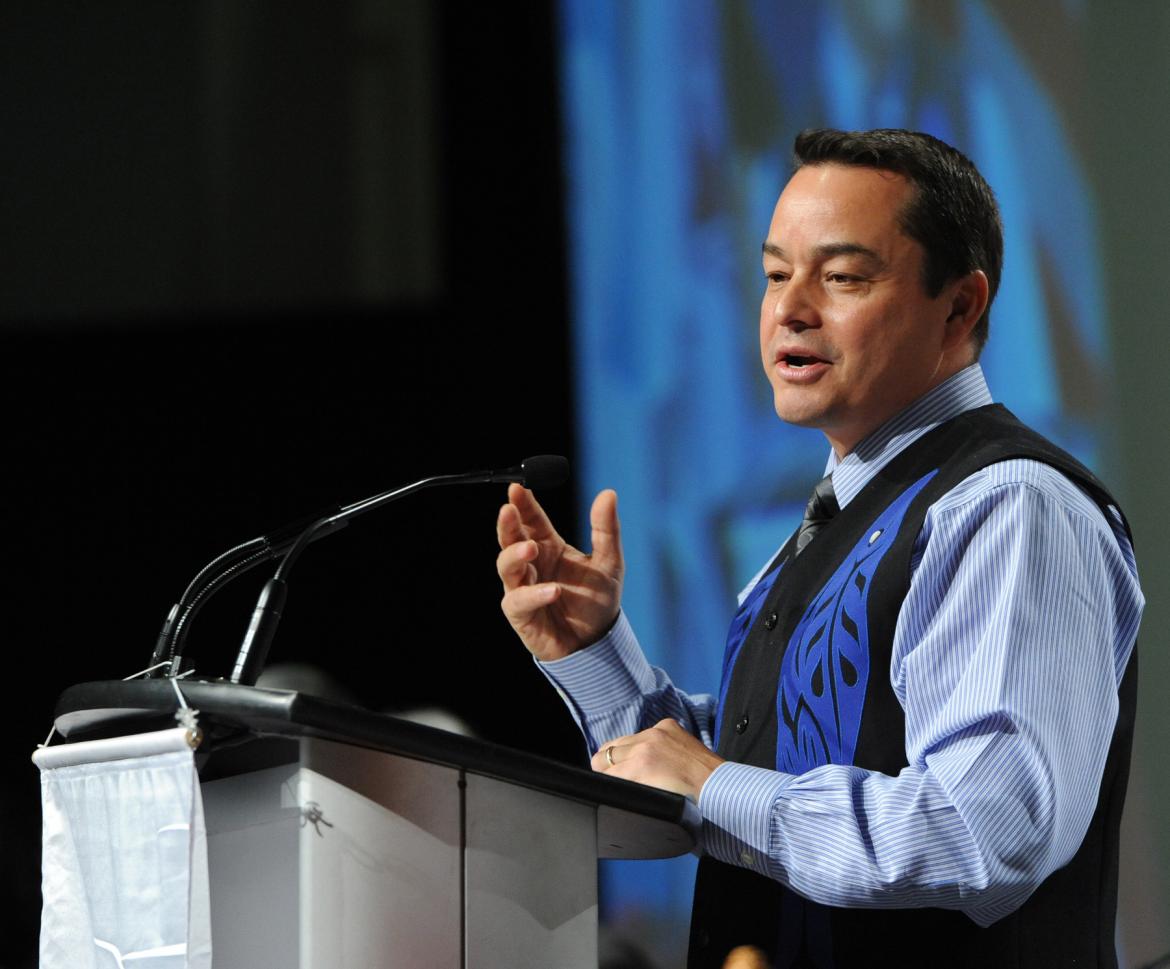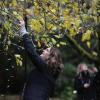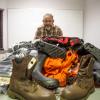
July 18, 2012 - 8:49am
Vancouver Island University President Ralph Nilson offered his congratulations to VIU Chancellor Shawn A-in-chut Atleo on being re-elected National Chief of the Assembly of First Nations.
“We are very proud of Chief Atleo and the work he is doing to advance opportunities for First Nations in BC and across Canada, and in raising the profile of Canadian First Nations internationally” said Nilson.
“Chief Atleo has been a constant advocate for the empowerment of First Nations people and their communities. He is a strong supporter of education at all levels and as Chancellor, has played a significant role in shaping the evolving agenda of Vancouver Island University.”
Atleo was installed as VIU’s Chancellor in September 2008, becoming the First Aboriginal Chancellor in the province of BC. In May 2011, VIU’s Board of Governors accepted the recommendation of the VIU Alumni Association and unanimously approved Atleo’s reappointment as Chancellor for a second three-year term.
VIU is very honoured to work in partnership with First Nations and coastal communities and is one of the leading post-secondary institutions in BC for participation of Aboriginal students.
Atleo played an important role as VIU and Snuneymuxw First Nation co-hosted a major conference this spring on the pre-confederation treaties of Vancouver Island. “Chief Atleo provided valuable insights and perspectives to the 300 participants and helped ensure success of the conference in raising awareness that we are all treaty people and we all have rights and responsibilities under the agreements signed by our ancestors,” Nilson said.
Nilson described Atleo as an exceptional representative and role model for VIU and the communities it serves.
“Shawn’s dedication to education and First Nations advocacy is an inspiration for all Canadians. We are very proud of what he has achieved and grateful for his contribution to Vancouver Island University” Nilson said.
-30-
Video conversation with Chancellor Atleo on the value of education:
Backgrounder
Shawn Atleo Q&A on “The Power and Importance of Education”
Chancellor Chief Shawn Atleo offered these candid and reflective thoughts on the power and importance of education in a conversation preceding convocation ceremonies earlier this year at VIU
Chief Atleo what advice do you have for Canada’s youth as they consider their educational future?
Education offers the spark that can light the fire of potential in an individual. I encourage young people to believe in themselves. It’s important for each student to know you are not alone. People like myself and every other person who works at a university like VIU are there to support you, to see you succeed, to see your hopes and dreams take flight.
Was there anyone who played a significant role in shaping your views about education?
My late grandmother. She told me the story of how she and all of her 17 children went to residential schools and all have very difficult stories to tell about their time, yet they’re all so resilient. She said, “you know, grandson, I was a fighter all my life. Every single one of my kids was a fighter as well. Grandson, you don’t fight with your fists any longer. You fight your fight with education.”
To still suggest that there’s hope and optimism for the future, and that it can be derived through success in education, is a powerful legacy for an elder who went through some of the most difficult times that our people have faced.
How can Canada move forward to promote education in the wake of the trauma associated with residential schools?
Following on the heels of the important apology made by the Prime Minister in the summer of 2008 to the generations who attended residential school, the next step would be to invest heavily in education.
How important is education?
Education is the door that we open and walk through to achieve progress in areas like health, economic development and reconciliation. We all need to encourage young people that if you do acquire a high school diploma, if you do go on to complete an apprenticeship or post-secondary education, that your lifetime earnings will be much more than if you leave school early.
What challenges do you see for Aboriginal students as they pursue their educational and life goals?
There’s been inequitable access to education in the course of recent history. That’s still a curse today. We want to make sure that equality of access is seen as a human right, as an individual right, a First Nations right that was negotiated in treaties going back a long way.
How do you see your role as Chancellor of VIU in contributing to Aboriginal learners?
There is an important contribution that First Nations professionals can make when they are invited to take leadership roles in education. First Nations students often have not had the experience of seeing themselves reflected back in the makeup of their institutions.
How can an institution like Vancouver Island University adapt to shifting opportunities for graduates?
We have some of the very best thinkers who have been attracted to, and trained by VIU. A smaller institution like VIU is more nimble, more able to react to a rapidly changing world around us.
How can education contribute to understanding the role of treaties in Canada’s past, present and future?
We might not have written that Indian Act. We might not have created the residential school system. But, we can all share in the responsibility of recognizing that our collective ancestors had the wisdom to form partnerships and forge treaties so that some time in the future we would remember what it was they intended. We can recapture that promise today.
How do you retain your optimism as you advocate on behalf of Aboriginal Canadians?
I really believe in people. Governments are put in place by people so we need to support those governments to respond to needs and priorities. We need change and we need action.
More and More, I’m seeing Canadians from all walks of life saying, ‘We’re prepared to make sure that we make right the things that have happened in the course of history.’
That’s where my hope springs.
Tags: In the Community






